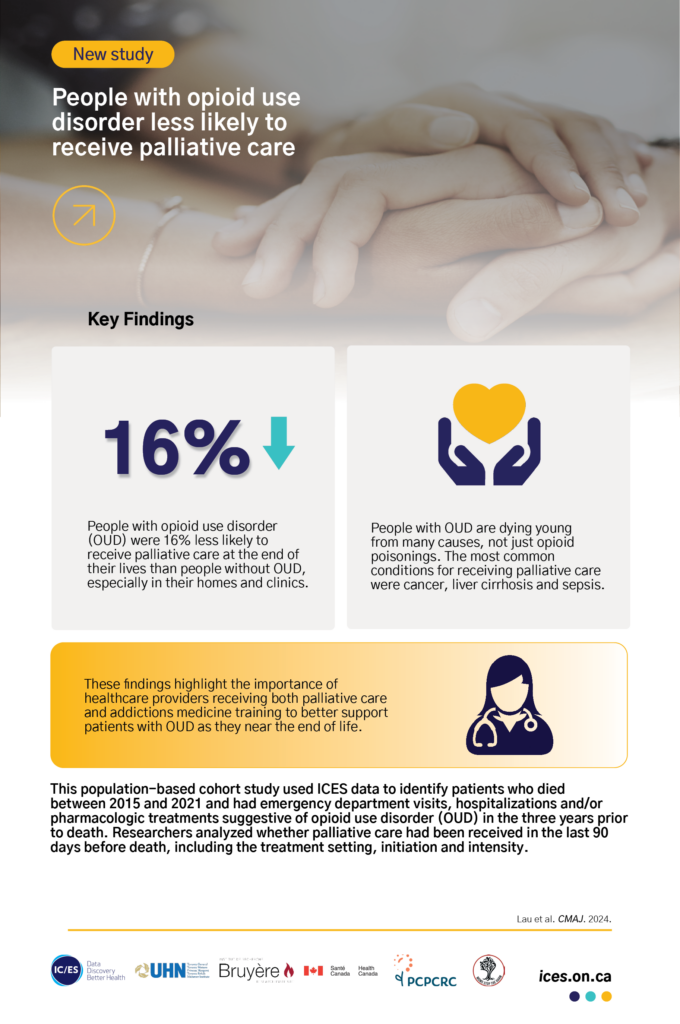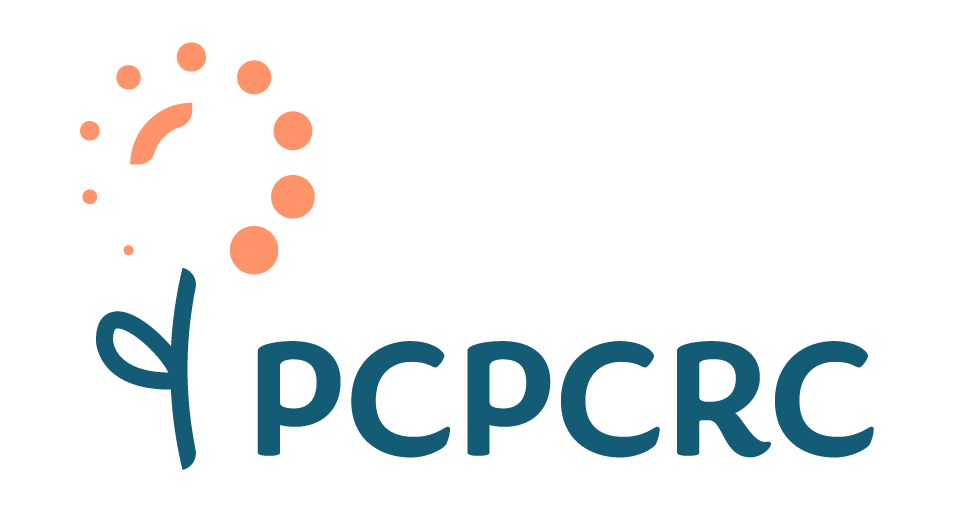Observing, Understanding, and Telling stories at the end of Life for Opioid Use Disorder patients (OUTLOUD) is a mixed methods study which describes the characteristics of people with opioid use disorder at the end of their lives, and examines whether people with opioid use disorder receive palliative care. Funded in part by Health Canada’s Health Care Policy and Strategies Program via the PCPCRC, it used ICES data on 679 840 deaths to identify differences in palliative care provision, prescribing, and outcomes between people with and without opioid-related health harms (OHH) to evaluate relationship between receipt of palliative care with opioid prescribing and outcomes.
The study, led by Dr. Sarina Isenberg and Dr. Jenny Lau, found that, compared to people without opioid use disorder (OUD), people with OUD were 16% less likely to receive palliative care. This finding is most likely related to the high number of people with OUD who die suddenly from drug poisonings. It also found that regardless of cause of death, people with OUD were less likely to receive palliative care in clinics and in their homes, compared to people without OUD. Although most people in Canada want to die at home, people with OUD can have limited social supports, limited finances and unstable housing, which may lead to challenges accessing palliative care in the community.
With the ongoing opioid crisis, the number of people with OUD is increasing. Palliative care will become increasingly important for people with OUD as this population ages. These findings highlight the importance of healthcare providers receiving palliative care and addictions medicine training to better support patients with opioid use disorder as they near the end of life.
For more on the OUTLOUD study, see the study page on our website. For the full paper, visit the CMAJ.


